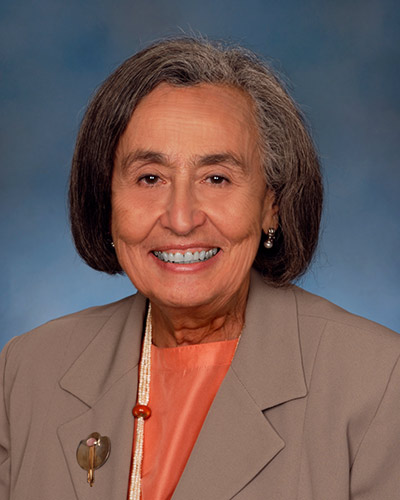September 11, 2018 | David Kohn

Researchers at the University of Maryland School of Medicine Find That These Cells Play a Key Role in Determining Sex Differences in the Brain
Researchers at the University of Maryland School of Medicine (UMSOM) have made a surprising discovery: during fetal development, a particular immune cell seems to play a key role in determining the male or female characteristics of the brain.
“This a totally new discovery,” says Margaret McCarthy, PhD, professor and chairman of the UMSOM Department of Pharmacology. “Prior to this, we didn’t know that these cells played a role in this process at all.”
The study, which was published today, appears in the latest issue of the Journal of Neuroscience.
Prof. McCarthy and her colleagues studied immune cells known as mast cells, which originate in the bone marrow but are found on body surfaces such as the skin, mouth, nose and eyes. They are also found on the outside surface of the brain in a membrane known as the meninges. Mast cells are signaling molecules, and when activated, they release a range of molecules, including serotonin, histamine and other inflammatory substances. In general they act as triggers for other immune system cells to respond to an injury or threat to the body.
“Mast cells are basically a signaling system, they release these substances, which signal to other immune cells to come and help out,” says Prof. McCarthy.
At the same time, they also exist, in small numbers, in a specific area of the brain known as the preoptic area. The preoptic area contributes to the control of sexual motivation and parenting behavior, basic behaviors that occur in nearly all species. During development, between 10 and 70 mast cells exist in this area. This study found that in males there are more of the cells in this area than in females, typically about twice as many, and they are more actively releasing their signaling molecules, in particular histamine.
Surprisingly, the histamine released by the mast cells in males signals to another immune cell, the microglia, and instructs them to make prostaglandins, another inflammatory signaling molecule. In previous research, Prof. McCarthy’s lab has shown how prostaglandins induce the development of neural connections in the preoptic area.
In research on rats, Prof. McCarthy and her colleagues found this crucial development occurs in the first week of postnatal development, and plays a large role in determining differences between the male and female brains. She says the findings amazed her: “This one type of cell, and a very small number of these cells, is orchestrating this complex multicellular process to permanently change the circuitry of the brain to make it different in males and females.”
In many animals, including both rats and humans, certain regions of male and female brains are quite different. Imaging studies in humans suggest that females tend to have more cross-hemisphere connections, while males tend to have more connections within each hemisphere.
There are also differences in the size of certain parts of the brain. Certain parts of the hypothalamus are larger in men than women. This divergence may play a role in determining sexual orientation. In gay men, this hypothalamic region is smaller than in heterosexual men; it is typically the same size as in heterosexual women.
On the cellular level male and female brains are also sometimes different. Males tend to have more dense synaptic connections in the preoptic area, while in other areas, females have more dense synaptic connections.
Prof. McCarthy has focused much of her work on the neuroscience of sex differences. In previous research she found sex and gender differences in levels of a protein associated with language acquisition and development. This finding may be associated with higher levels of communication among females in some species.
In previous research, she had found that another kind of immune cell known as microglia appear to play a role in masculinization, in part through their production of prostaglandins, a neurochemical normally associated with illness. In recent years, scientists have increasingly realized that the immune system is integral to the development of the brain;
Prof. McCarthy and her colleagues are now doing additional research on the links between the immune system and brain sex differences. They will next focus on the role of histamine, one of the chemicals released by mast cells, to discover more about precisely what role it plays in the process.
“This work provides fascinating new insight into how male and female brains develop differently,” said E. Albert Reece, MD, PhD, MBA, Executive Vice President for Medical Affairs at the University of Maryland, Baltimore, and the John Z. and Akiko K. Bowers Distinguished Professor and Dean, University of Maryland School of Medicine. “Prof. McCarthy has spent years working in this important area, and this is just the latest discovery in a remarkable career.”
About the University of Maryland School of Medicine
Commemorating its 211th Anniversary, the University of Maryland School of Medicine was chartered in 1807 as the first public medical school in the United States. It continues today as one of the fastest growing, top-tier biomedical research enterprises in the world -- with 43 academic departments, centers, institutes, and programs; and a faculty of more than 3,000 physicians, scientists, and allied health professionals, including members of the National Academy of Medicine and the National Academy of Sciences, and a distinguished recipient of the Albert E. Lasker Award in Medical Research. With an operating budget of more than $1 billion, the School of Medicine works closely in partnership with the University of Maryland Medical Center and Medical System to provide research-intensive, academic and clinically-based care for more than 1.2 million patients each year. The School has over 2,500 students, residents, and fellows, and nearly $520 million in extramural funding, with most of its academic departments highly ranked among all medical schools in the nation in research funding. As one of the seven professional schools that make up the University of Maryland Baltimore campus, the School of Medicine has a total workforce of nearly 7,000 individuals. The combined School and Medical System (“University of Maryland Medicine”) has an annual budget of nearly $6 billion and an economic impact in excess of $15 billion on the state and local community. The School of Medicine faculty, which ranks as the 8th-highest public medical school in research productivity, is an innovator in translational medicine, with 600 active patents and 24 start-up companies. The School works locally, nationally, and globally, with research and treatment facilities in 36 countries around the world. Visit medschool.umaryland.edu/
Contact
Office of Public Affairs
655 West Baltimore Street
Bressler Research Building 14-002
Baltimore, Maryland 21201-1559
Contact Media Relations
(410) 706-5260
Related stories

Tuesday, October 22, 2024
UM School of Medicine's Margaret M. McCarthy, PhD, Elected as Member of Prestigious National Academy of Medicine
Margaret M. McCarthy, PhD, an internationally-recognized neuroscientist, who is the James and Carolyn Frenkil Dean’s Endowed Professor in the University of Maryland School of Medicine's Department of Pharmacology, Physiology, and Drug Development, and Director of the University of Maryland – Medicine Institute of Neuroscience Discovery (UM-MIND), has been elected as a new member of the National Academy of Medicine.

Tuesday, April 25, 2023
Immune System Sculpts Rat Brains During Development
Researchers have established that biological sex plays a role in determining an individual’s risk of brain disorders. For example, boys are more likely to be diagnosed with behavioral conditions like autism or attention deficit disorder, whereas women are more likely to suffer from anxiety disorders, depression, or migraines. However, experts do not fully understand how sex contributes to brain development, particularly in the context of these diseases. They think, in part, it may have something to do with the differing sizes of certain brain regions.

Monday, November 14, 2022
Brain Area Thought to Impart Consciousness, Behaves Instead Like an Internet Router
Tucked underneath the brain’s outer, wrinkly cortex is a deeply mysterious area, known as the claustrum. This region has long been known to exchange signals with much of the cortex, which is responsible for higher reasoning and complex thought. Because of the claustrum’s extensive connections, the legendary scientist Francis Crick, PhD, of DNA-discovery fame, first postulated in 2005 that the claustrum is the seat of consciousness. In other words, the region of the brain enabling awareness of the world and ourselves.

Monday, March 14, 2022
Dancing Laboratory Rats Show How the Brain Learns, Perfects, then Unconsciously Performs a Skillful Movement
Learning a complex skilled movement like tying your shoes or playing an instrument takes practice. After repeating the same movements over and over, people often develop a formulaic way of performing the task, and may not even have to think about it anymore. Although we accomplish such repetitive tasks every day, little is known about how the brain learns, repeats, and perfects them.

Thursday, January 27, 2022
Microbiome of Mother’s Vagina May Affect Infant Mortality Risk and Baby’s Development
A new study in mice from University of Maryland School of Medicine researchers showed that an unhealthy vaginal microbiome in pregnant mothers in combination with an unhealthy diet contributed to increased pup deaths and altered development in the surviving babies.

Tuesday, June 08, 2021
IN MEMORIAM: UM School of Medicine Biomedical Research Pioneer and Pharmacology Professor, Laure Aurelian, PhD
The Department of Pharmacology at the University of Maryland School of Medicine (UMSOM) is saddened to announce the passing of Laure Aurelian, PhD, Professor Emerita of Pharmacology. She was the first woman to receive a PhD from the Johns Hopkins University School of Medicine and was a pioneer who opened doors for many women to pursue research careers in biomedical science. She was also among the first women to receive independent funding from the National Institutes of Health, receiving her first R01 award in 1970.

Wednesday, October 21, 2020
UM School of Medicine Postdoctoral Fellow Awarded Prestigious AAAS Science and Technology Policy Fellowship
Ryan Richardson, PhD, Postdoctoral Fellow, Department of Pharmacology, at the University of Maryland School of Medicine (UMSOM) was awarded a highly prestigious American Association for the Advancement of Science (AAAS) Science & Technology Policy Fellowship (STPF), placing him at the National Institutes of Health (NIH)’s Brain Research through Advancing Innovative Neurotechnologies (BRAIN) Initiative for a year.

Friday, September 06, 2019
UMSOM's Dr. Margaret McCarthy Awarded Indiana University's Gill Transformative Investigator Award for Neuroscience Research
Indiana University’s Gill Center for Biomolecular Science has given Margaret McCarthy, PhD, The James & Carolyn Frenkil Endowed Dean’s Professor and Chair of the Department of Pharmacology at the University of Maryland School of Medicine (UMSOM), The Gill Center for Biomolecular Science 2019 Gill Transformative Investigator Award.

Thursday, March 28, 2019
Allergic Reactions Play Role in Sexual Behavior Development in Unborn Males and Females, UMSOM Research Shows
Researchers at the University of Maryland School of Medicine and colleagues at Ohio State University have discovered that allergic reactions trigger changes in brain behavior development in unborn males and females. This latest brain development discovery will ultimately help researchers better understand how neurological conditions can differ between men and women.

Friday, March 01, 2019
UMSOM Researchers Discover Clues to Brain Differences Between Males and Females
Researchers at the University of Maryland School of Medicine have discovered a mechanism for how androgens -- male sex steroids -- sculpt brain development. The research, conducted by Margaret M. McCarthy, Ph.D., Professor of Pharmacology and Chair of the Department of Pharmacology, could ultimately help researchers understand behavioral development differences between males and females.

Tuesday, July 31, 2018
University of Maryland School of Medicine Establishes Two Endowed Professorships Through Private Gifts and Matching State Funds
University of Maryland School of Medicine (UMSOM) Dean E. Albert Reece, MD, PhD, MBA, announced today that the school has been awarded matching funds from the Maryland E-Nnovation Initiative Fund (MEIF), administered by the Maryland Department of Commerce. The funds, when combined with private philanthropy, will enable UMSOM to establish two new endowed professorships – one in Microbiology and Immunology, and one in Pharmacology.

Monday, July 16, 2018
Microbes from Birth Canal May Affect Stress Levels of Offspring
Researchers have long known that stress during pregnancy may be transferred from the mother to her offspring. Many studies have shown that this stress can have long-lasting impacts on the physical and emotional health of the offspring. However, the mechanisms of this transfer have remained mysterious. A new study has unraveled one possible way in which these effects move from mother to child.

Wednesday, July 11, 2018
Scientists Identify Mechanism That May Explain Why Males Have a Higher Risk for Neurodevelopmental Disorders
Researchers have recently begun to realize that biological sex plays a key role in disease risk. Sex differences play a role in hypertension, diabetes, arthritis – and in many neurological and psychiatric disorders. Depression and anxiety affect females more, while neurodevelopmental disorders, including autism spectrum disorders, early onset schizophrenia, and attention deficit hyperactivity, affect more males. Males are also more sensitive to issues during pregnancy, such as maternal stress, maternal infection and exposure to drugs.

Friday, June 15, 2018
Acting Chairs Appointed for Pharmacology and Physical Therapy Departments During Chair Sabbaticals
University of Maryland School of Medicine (UMSOM) Dean E. Albert Reece, MD, PhD, MBA, announced today that two department chairs, Margaret McCarthy, PhD, Professor and Chair, Department of Pharmacology, and Mark Rogers, PhD, PT, FAPTA, the George R. Hepburn Dynasplint Professor and Chair, Department of Physical Therapy and Rehabilitation Science (PTRS), will be taking sabbatical leave during the 2019 fiscal year. In making the announcement, Dean Reece noted that acting chairs have been named to provide leadership in these two departments during this period.

Thursday, May 03, 2018
Renowned Journalist Nicholas Kristof Speaks on Justice and Society
Renowned New York Times journalist Nicholas Kristof will speak on May 3 at the Peabody Library in Baltimore on the need to build a fairer society.

Thursday, March 01, 2018
Increased Stress on Fathers Leads to Brain Development Changes in Offspring
New research in mice has found that a father’s stress affects the brain development of his offspring. This stress changes the father’s sperm, which can then alter the brain development of the child. This new research provides a much better understanding of the key role that fathers play in the brain development of offspring.
